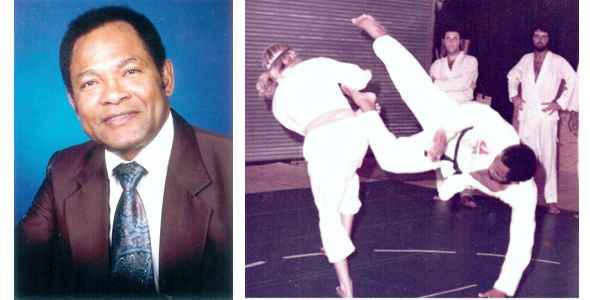I submitted this article because there has been a disturbance in the force and I feel this is being caused by a lack of accountability in the martial arts. It would be hypocritical of us not to acknowledge that there are fakes, and frauds in the martial arts world, particularly, in the higher ranks. However, their lack of character and integrity is progressively exposing them. In addition, their lack of skills, understanding and knowledge of the arts, are gradually becoming obvious to many who have previously embraced them.
There is a move on to discredit some in the martial arts that have made significant contributions, and have worked to spread the arts nationwide. Today, I would like to ask you to take the opportunity and reflect upon the reasons why you decided to embark on the martial arts journey, but more important, what you have learned along the martial arts path.
If you are like many of us, who pursued the martial arts because we wanted to learn how to defend ourselves, and kick butts, that is fine. However, if you have remained in the arts long enough to have achieved a high rank, and the title of Master, or Grand Master, surely you must have come to realize by now that kicking butts is not all there is to the arts. There certainly is a deeper sense of awareness, commitment, calmness, and confidence involved when one becomes a student of the martial arts.
The primary goals of all martial arts, no matter by what name it is known, are similar. In Japanese martial arts, the goals are (A) Physical development (Renshindo), (B) Mental and spiritual development (Shushindo), and Proficiency in a contest (Shubudo).
Many individuals practice one, or more of the martial art, and are very good at what they do. However, they erroneously refer to themselves as students of the martial arts. Personally, I prefer to call those individuals practitioners of the martial arts, and not students of the martial arts.
You see, to be a student of the martial arts, one must be taught all three components of the arts, along with their underlying subdivisions, which include the history, terminology, physiology, biology, target acquisition, and the dynamics of motions and body movements. These are some of the reasons why to be a student of the martial arts it takes a lifelong commitment, and not something one acquires in the short term, or even over the course of several years.
The martial art is not a twelve-step program, nor is it something one does just to pass the time, but a way of life. It is unfortunate that in many cases, the uninitiated is unaware of the true essence of the martial arts, and wrongly identifies it as a way to developing fighting skills. Furthermore, many instructors deceive potential candidates into thinking that is all the martial arts are about.
Before going any further, please let me disclose this valuable fact: I do not profess that I am the ultimate authority on the martial arts (as some would have you believe they are). I am certainly not a great fighter. Nor am I am not well known in the martial arts communities, and neither have I ever been in any movies, or published a book about the arts. My claim to fame stems from the fact that I have been in the martial arts for the past fifty-six years, and have studied, and trained with, and by some of the best, essentially, unknown martial arts instructors in Jamaica, Europe, Cuba, and the United States.
Over the past four years, or so, I have had the pleasure of meeting some very excellent martial artists. Individuals who are at the top of their games, and are very good at what they do. Adversely, I have also met some individuals who have made claims of grandeur and accomplishments, only to discover during our relationship that they have absolutely no idea what the martial arts are about.
During a conversation with one individual who claims, he has very high ranks in numerous disciplines, including Judo, I mentioned to him, that I had to do katas during my test for Nidan rank in Judo. He laughed, then, said, “Who taught you Judo? There is no kata in Judo.” I simply smiled, and said, “My Judo instructors ripped me off, can you teach me?” “Yes!” He said, but never got around to it. Since then, I have come to realize he has no idea what are the difference between Gatame Waza, and Nage Waza, Yoko Shiho Gatame, and Kami Shiho Gatame. In essence, this self-professed high-ranking Judoka has absolutely no knowledge of Judo.
As always, my thoughts and comments is not to disrespect any individual martial artists, or the martial arts in general; however, I was admonished recently that the words used in the formatting of my sentences are too strong, and accusatory. Furthermore, that there are some who are offended by my comments. For that, I am truly sorry, because it is not my intention to accuse or disrespect anybody.
Recently, I posted an apology on Facebook, to the martial arts community about a comment that I had posted. As stated in that apology, and I say again, if we do not begin to be accountable for our actions, and hold others in the arts responsible for their actions, we can only look forward to more lies, deceptions and frauds continuing to plague the martial arts world.
Humbly submitted,
Byron Mantack



